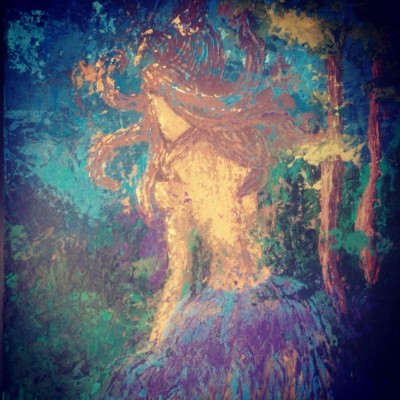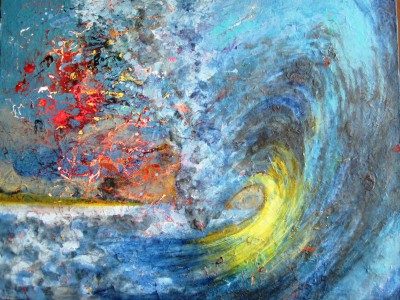
"Listen to the Pulse of the Planet!" was the call for a concert on 24 January 2013 in the Yehudi Menuhin Space in the European Parliament under the patronage of Vice President Isabelle Durant. Some 45 musicians from the European institutions and the children's choir of the European School Brussels II performed the Goldberg Variations of Johann Sebastian Bach.
The founder of the concept, Naomi Takagi, sees it as the start of a global initiative and says: "The universality, the unifying power and the healing nature of Music are acknowledged throughout the world. Music is the supreme global language, which transcends all political, cultural, religious, and ethnic orientations and touches the depths of human existence. Not only does Music inspire, support, change and improve the well-being of all who participate. It also fosters understanding, creates bonds between people, mobilizing them in large numbers even across borders, and has supported humanitarian initiatives for peace and peaceful resolutions where other means fall short.

During this time of global crisis, we recognize the importance of universal solidarity and propose to resort to Music to mobilize and engage the humankind of all ages and nationalities."
Jean Ferrard, Honorary Professor at the Royal Conservatory of Music in Brussels commented on the significance of Johann Sebastian Bach and his immense oeuvre, which inspired people irrespective of whether they were sharing his religious beliefs. Bach left a deep mark well beyond his contemporaries and speaks to us today through the structure and sound of his securingly structured and balanced music.
Nobody escaped the charm of the concert, which was enabled by the generosity and solidarity of many helping hands. Most importantly it relied on the musicians who, though not top professionals, took it upon themselves to face the difficult task of performing in front of a large public as a sign of their commitment to the cause. Several groups of string and wind instruments, as well as vocals alternated with the piano played by several musicians. They reflected the diversity of age, nationality, maturity and perspective the concert was intending to highlight - yet having all bound together by Bach's beautiful Goldberg variations.

The children's choir sang the final aria with Annabel Hannan from the European Parliament at the piano.
In conclusion, European Parliament Vice-President Isabelle Durant thanked Naomi Takagi, the musicians and all supporters for the beautiful moment spent together listening to the music.
She invited the audience to take the appeal of the organisers to heart: to strengthen existing and to create new initiatives so as to stand together for protecting our beautiful, yet fragile Earth.
A reception offered by the ECC group of the European Parliament allowed the sensation of calm, solidarity and resolve to do something to linger on as the audience and musicians mingled in animated discussion.
 Mundus maris supports the initiative, among others, by encouraging people in different parts of the globe to join and contribute their own way of listening to the pulse of the planet.
Mundus maris supports the initiative, among others, by encouraging people in different parts of the globe to join and contribute their own way of listening to the pulse of the planet.
Let's pause to get into synch again with ourselves, with each other and and with our beautiful Blue Planet.
The call has also been heard by graphic artists, who developed several posters to draw attention to the event. Here is one by Paolo Bottoni.
Others are already lining up to contribute.
Read on for more contributions.
ALDEBARAN supports the initiative
 The call sent out before the concert "Listen to the Pulse of the Planet" in the European Parliament is already being heard. The ALDEBARAN team, marine research and communication, in Hamburg has produced part of their underwater footage with the Goldberg Variations as sound track. There are five pieces of about 14 minutes each:
The call sent out before the concert "Listen to the Pulse of the Planet" in the European Parliament is already being heard. The ALDEBARAN team, marine research and communication, in Hamburg has produced part of their underwater footage with the Goldberg Variations as sound track. There are five pieces of about 14 minutes each:
Click here for the first one (1/5).
Click here for the second one (2/5).
Click here for the third one (3/5).
Click here for the fourth one (4/5).
Click here for the fifth one (5/5).
View the videos about marine and coastal life, see some in already seriously degraded state, but others still showing at least a good part of their former glory. When you watch attentively and listen to Bach's music, you will get a sense, why protecting the oceans and restoring them to former states of health and productivity is a must.
In the face of overfishing, the global marine litter crisis and climate change this will truly require a surge of cooperation and solidarity across the globe.
LOS SONIDOS ETERNOS
La música de la naturaleza.
Por Nuria Estrella Santos
En esta temporada del año no tengo muchos huéspedes, en esta semana solo tres cabañas ocupadas. La gente va y viene pero rara vez logro recordar las conversaciones que tengo con ellos.
 No soy una persona curiosa, pero me impresiona la facilidad que tienen las personas para contar sus vidas y por eso me gusta hacer preguntas. Las vidas ajenas suelen ser parecidas y pocas veces me intereso por ellas, pero considero que es parte de mi trabajo y simplemente escucho.
No soy una persona curiosa, pero me impresiona la facilidad que tienen las personas para contar sus vidas y por eso me gusta hacer preguntas. Las vidas ajenas suelen ser parecidas y pocas veces me intereso por ellas, pero considero que es parte de mi trabajo y simplemente escucho.
Hace unos días vino la chica de los sonidos eternos, y desde que se fue este lugar se oye distinto y talvez yo también.
No era muy diferente al resto de personas que vienen, pero había algo en ella que me intrigaba un poco. Cuando llegó me pidió una habitación que estuviera cerca del río.
Caminamos hacia la numero tres, ella no hizo el acostumbrado recorrido ni chequeo del lugar, cerró los ojos, se quedó por un momento en silencio y luego me dijo que era perfecta, después entendí porque…
Salía a caminar temprano en la mañana y después no se la veía hasta la hora de la cena.
Le gustaba cenar con los demás huéspedes, pero el último día llegó un poco mas tarde y solo estaba yo. Empezamos a hablar, las personas siempre me preguntan sobre mi vida en este lugar y yo acostumbro a repetir mis diálogos. Pero ella hablaba de cosas que no estaban en mi guión, me interesó lo que decía, así que me senté a escucharla.
Le pregunté que era lo que la traía este lugar, ella tardó un poco en contestarme, como si guardara un secreto. Luego me dijo que iba buscando los sonidos eternos.
Un sonido eterno como ella decía, lo debes oír para escucharlo, los sonidos sin música, solo ese ruido constante y errático de las cosas vivas, de las cosas que vienen y van, los sonidos eternos.
Yo vivía en un lugar de sonidos eternos, pero nunca lo había sentido así, talvez cuando las cosas tienen un nombre, entonces empiezan a tener sentido.
Para ella los sonidos eternos estaban relacionados con la naturaleza y cuando los descubrió nunca mas quiso alejarse de ellos. Mientras me hablaba noté ese brillo en los ojos que tienen las personas que se apasionan por algo. Siempre me han desconcertado un poco esas personas, y como sus vidas se van transformando al capricho de sus pasiones.

Un sonido eterno: el de la luna que juega incansablemente con el mar; la orquesta de los animales de la selva donde cada segundo nace un nuevo integrante; un bosque en el que las hojas nunca terminan de caer; la carrera infinita de los ríos hacia el mar; el baile del viento con las ramas; la lluvia dentro del océano y el himno de los peces.
- ¿Y porque los grabas? – Un día se sorprendió de esa intensidad a través de los sonidos y la música. Podía mirar una foto de su difunto padre con cierta indiferencia, pero la ópera siempre despertaría en ella emociones muy fuertes, una tristeza dulce, que de un golpe le devolvía el recuerdo de su padre y aquellas mañanas cuando era pequeña, Caruso sonaba; era hora despertarse.
Así se dio cuenta que la memoria de los sonidos es mucho más fuerte que la de las imágenes y nunca más volvió a tomar una foto… La música y los sonidos son como la llave maestra que abre los archivos de nuestra memoria. Una etapa sin música –decía- es una etapa perdida donde nada es memorable ni intenso.
“Siempre tomamos fotos de paisajes y lugares bonitos, pero los paisajes también hablan” Jugaba con la idea de que cada paisaje habla un idioma distinto, en sus viajes, en vez de una cámara de fotos llevaba una grabadora y un micrófono, así no tan solo capturaba un instante si no miles de momentos, imágenes y sensaciones en forma de vibraciones que viajan a cientos de metros por segundo a través del aire.
Clique aquí para escuchar sonidos eternos:
El mar y los lobos marinos. San Cristobal, Islas Galapagos, Ecuador. Grabado por Pablo Mejia Saccomori
Pájaros en la madrugada. Quito, Ecuador. Grabado por Nuria Estrella Santos.








